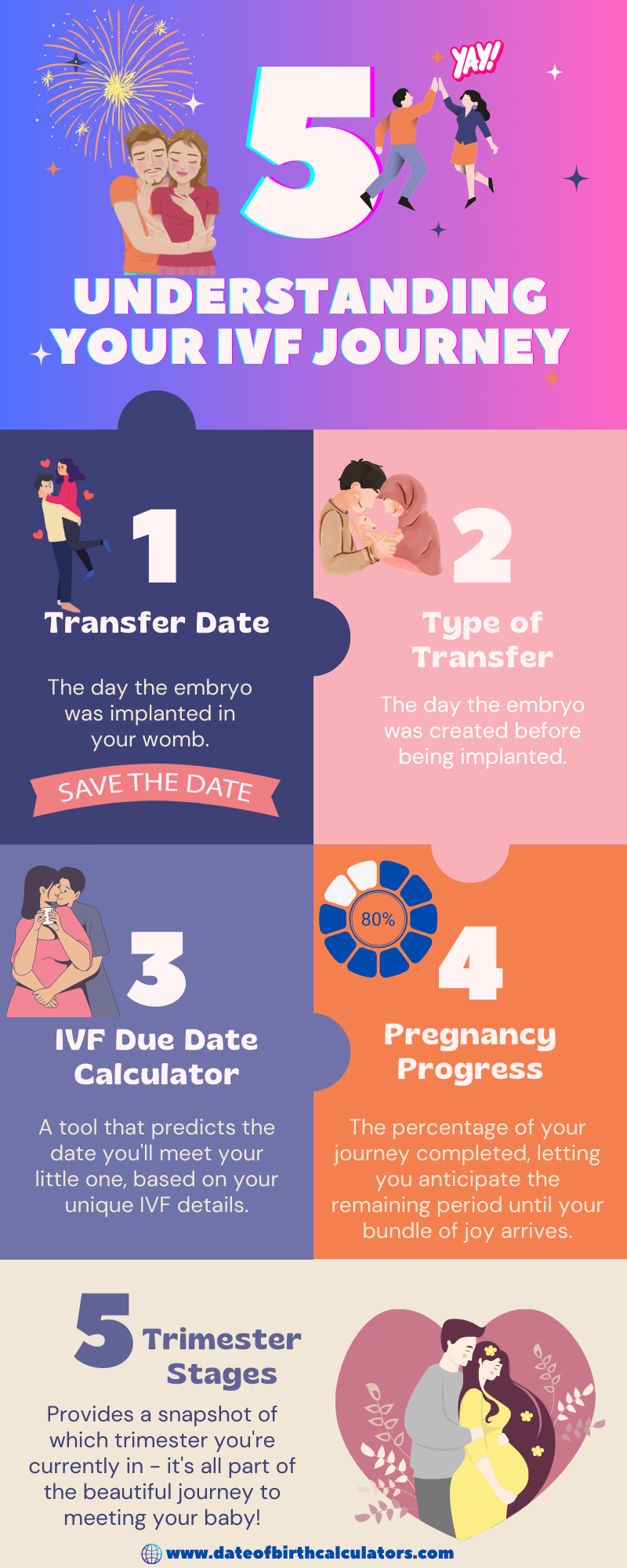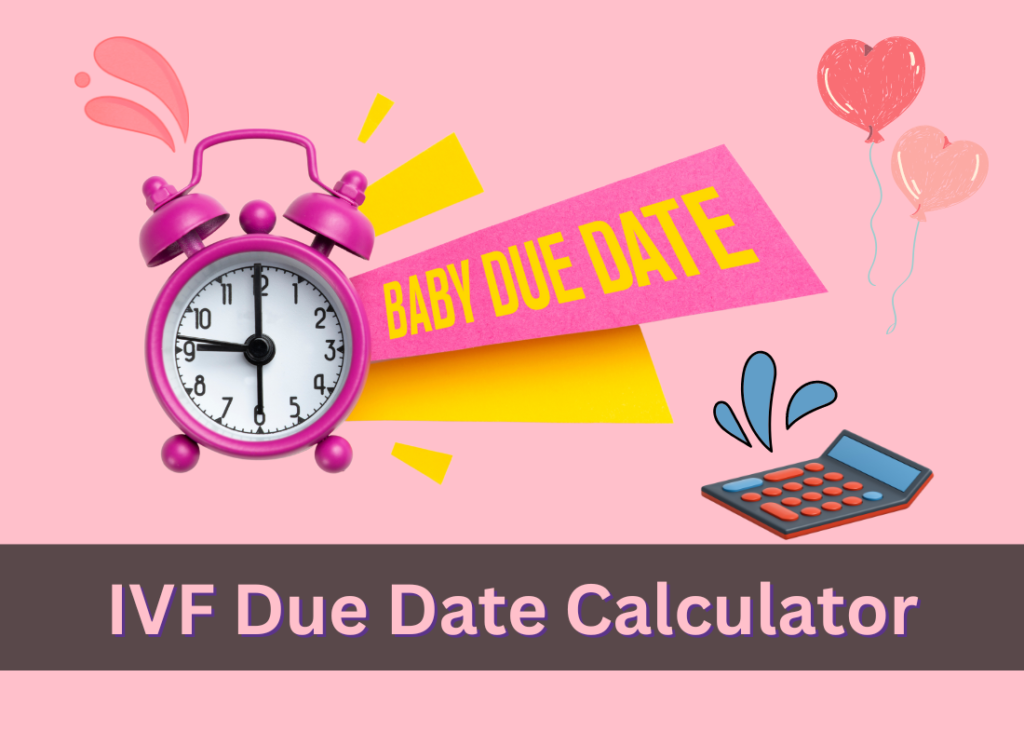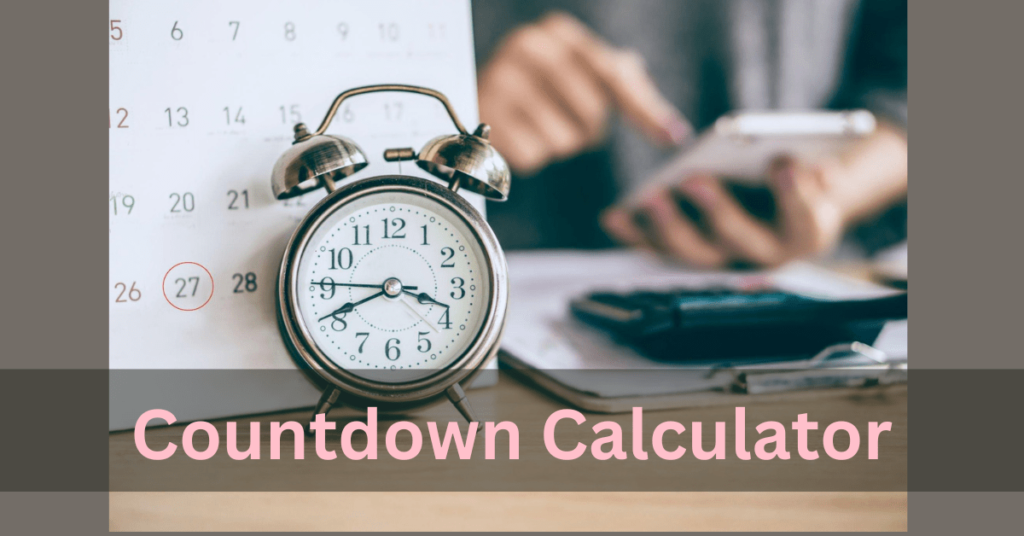IVF Due Date Calculator
Navigating Parenthood with the IVF Due Date Calculator
When expecting a baby through In Vitro Fertilization (IVF), it's natural to be curious about the baby's arrival. A tool that can help is the IVF Due Date Calculator 2023. It's like a new parent's best friend.
This due date calculator IVF works by predicting your baby's due date. All you need is the embryo transfer date and type of transfer. Then you can use the IVF calculator due date to determine when you'll meet your baby.

What About Different Transfer Types we can calculate on IVF Due Date Calculator?
Not all IVF procedures are the same. That's why this tool can adapt. For instance, it can work as an IVF due date calculator FET or a due date calculator IVF FET. It can even function as an IVF pregnancy due date calculator.
For other types of transfers, you can still use the pregnancy due date calculator IVF. It can also calculate the due date IVF for 5-day or 6-day transfers.
How Do You Calculate a Due Date with IVF?
When you want to know how to calculate the due date with IVF, the IVF due date calculator twins can help. This tool also doubles as a due date IVF calculator. It even works as an IVF due date calculator frozen transfer.
This tool can calculate IVF due date regardless of the transfer type. So, it can work as an IVF due date calculator, a 6-day transfer, or even the best IVF due date calculator.
What About IVF Transfers?
Yes, it can help there too. The IVF transfer due date calculator can help predict your baby's arrival. If you want to know how to calculate IVF due date, it's straightforward with this tool. You can even use the IVF frozen transfer due date calculator to determine your baby's due date.
How to Calculate an IVF Due Date?
Calculating the due date IVF is simple with the due date calculator for IVF. This tool also works as a due date calculator IVF transfer. So, you can easily calculate my due date IVF using this tool. It works as a FET IVF due date calculator and an IVF twins due date calculator.
If you're still wondering about calculating IVF due date, don't worry. This tool can also work as a due date calculator with IVF. It's that versatile. In addition to tracking your due date, you might also want to understand your baby's growth journey. Visit our comprehensive Baby Growth Calculator to explore your little one's growth milestones.
How is Due Date Calculated with IVF?
The due date is calculated based on the date of the embryo transfer and the type of transfer. With this tool, you can easily predict your baby's due date and make preparations accordingly.
FAQs
- How does the IVF due date calculator work? A: It uses the date of your embryo transfer and the type of transfer to predict your baby's due date.
- Can this calculator handle different types of transfers? A: Absolutely! This calculator can handle various transfer types, from 5-day and 6-day transfers to frozen embryo transfers.
- Can I use this calculator if I'm expecting twins? A: Yes, you can! This calculator can predict the due date for twin pregnancies too.
- How is IVF due dates calculated? The due date after IVF is calculated by adding 263 days to a three-day embryo transfer date.
- How to determine gestational age IVF? To determine the gestational age in IVF, subtract 14 days from the ovulation date.
- How many weeks pregnant are you after the IVF transfer? After a three-day embryo transfer in IVF, you are typically considered two weeks and two days pregnant.
- What is the IVF formula? The IVF formula refers to the calculations made during IVF treatment. This includes calculations like gtts/min x mins/hour x gtt factor (1mL/cc=15 gtts).
- Are IVF babies born early? Statistically, IVF babies are more likely to be born prematurely than naturally conceived babies, but every pregnancy is unique.
- How accurate is IVF due date? IVF due dates are relatively accurate, as the conception date is known. However, just like natural conception, the actual delivery can vary.
- Is the due date different with IVF? An IVF due date isn't different than a naturally conceived due date. It's just that with IVF, the conception date is more accurate.
- How can I predict the gender of my baby in IVF? PGD/PGS/PGT-A can determine gender during an IVF journey. Still, these procedures are typically used for detecting genetic diseases.
- What is the IVF timeline? An IVF cycle typically takes about two to three weeks, from starting medications to retrieving eggs.
- Why wait 2 weeks after IVF transfer? The two-week wait allows time for the embryo to implant and for a pregnancy test to be accurate.
- Do frozen embryos have a heartbeat? Embryos themselves don't have heartbeats. At around 6 weeks of gestational age, you can see a heartbeat on an ultrasound.
- How many days after embryo transfer is the period due? A pregnancy test is typically done about two weeks after the embryo transfer.
- Why drink milk during IVF? Milk provides iodine, which is vital for thyroid function, and can support a healthy pregnancy.
- Is IVF safe for babies? IVF is generally safe for the baby. However, there may be a slightly increased risk of congenital disabilities.
- What is IVF food? A healthy diet for IVF should include fruits, vegetables, lean proteins, and whole grains. It's best to limit red meat, sugar, and processed foods.
- Is IVF 100% accurate? While IVF increases the chance of pregnancy, it doesn't guarantee success. Success rates vary, with about 50% success in women under 35.
- Which month is best for IVF success? There's no definitive 'best' month for IVF. Still, studies suggest that cycles initiated between March and September may have higher success rates.
- Is IVF pregnancy high-risk? IVF pregnancies may have slightly higher risks for complications like premature birth and low birth weight.
- Is IVF round or cycle? An IVF cycle refers to one complete round of IVF treatment, from the start of medication to the result of the embryo transfer.
- Is there any difference between an IVF baby and a normal baby? There's no significant difference between IVF babies and those conceived naturally. They are equally healthy and normal.
- Is IVF pregnancy the same as normal pregnancy? Once the embryo implants, an IVF pregnancy is the same as a natural pregnancy.
- Is IVF allowed in Islam? IVF is generally considered acceptable in Islam as long as it involves a married couple and the egg and sperm are both from the couple.
- Are male or female embryos stronger? Neither male nor female embryos are inherently stronger; viability depends on the embryo's health and quality.
- Can I have twins with IVF? Yes, IVF can increase the chance of multiple pregnancies if more than one embryo is transferred.
- How many injections per day for IVF? The number of injections may vary, but it's typically 1–2 injections per day during an IVF cycle.
- Is the IVF procedure painful? Most women experience minimal pain during IVF. Any discomfort is typically from the side effects of medications or minor discomfort after procedures.
- How many eggs are normal for IVF? The number varies, but typically, 10 – 20 eggs are retrieved for IVF.
- What is the last step of IVF? The last step of IVF is the transfer of the embryo(s) to the uterus, followed by a pregnancy test after about two weeks.
- What to avoid after embryo transfer? After embryo transfer, avoid vigorous exercise, smoking, excessive caffeine, and alcohol. Also, manage stress levels and eat a balanced diet.
- What are the good signs after embryo transfer? Some positive signs after an embryo transfer includes:
- A missed period.
- Tender breasts.
- Mild bloating.
- Mild cramping.
- Constipation. But these are not definitive, and a pregnancy test is required to confirm pregnancy.
- What not to eat after embryo transfer? After embryo transfer, it's best to avoid alcohol, excessive caffeine, and foods high in sugar or unhealthy fats. Opt for a balanced diet rich in lean proteins, fruits, vegetables, and whole grains.
- Is a frozen embryo alive? Frozen embryos are viable, but terming them as "alive" can be complex as they are in a state of suspended animation until thawed and transferred into a uterus.
- Is cramping normal 9 days after embryo transfer? Some women experience cramping after an embryo transfer. However, severe or worsening cramps should be reported to your healthcare provider.
- What size follicle is needed for frozen embryo transfer? For frozen embryo transfers, follicle size is not a factor, as no egg retrieval occurs. The focus is on preparing the lining of the uterus for implantation.
- Which cycle is best for embryo transfer? The best cycle for embryo transfer varies for each individual. It generally depends on the woman's specific hormonal and physiological circumstances during the cycle.
- What is good luck for IVF? Staying positive, eating a balanced diet, getting moderate exercise, and following your doctor's instructions all contribute to creating the best conditions for IVF success.
- Is yogurt good after embryo transfer? Greek yogurt can be beneficial due to its protein content and potential to support a healthy gut microbiome.
- Is Apple good after embryo transfer? Yes, apples and other nutritious fruits can contribute to a balanced, nutrient-rich diet that supports a healthy pregnancy.
- What is an IVF baby called? An IVF baby is often called a test tube baby. Some people may refer to the child as an "IVF baby," but this is typically when discussing fertility treatments.
- What are the two disadvantages of IVF? Two potential disadvantages of IVF include the cost, which can be prohibitive for some people, and the potential for multiple pregnancies, which can increase the risk of complications.
- What gender is more common with IVF? Studies show that IVF may slightly increase the chances of having a boy. However, it's important to note that the sex of a baby is essentially a result of chance.
- What fruit is best during IVF? Eating a variety of fruits is vital during IVF. Pineapple, in particular, is often touted as beneficial due to the enzyme bromelain, which may help implantation.
- Can I eat rice during IVF? Yes, you can eat rice during IVF. Whole grain varieties are preferred as they are higher in fiber and regulate blood sugar levels better.
- Is IVF successful on the first try? IVF can be successful on the first try, but it's not guaranteed. Success depends on many factors, including age, fertility issues, and embryo quality.
- Does IVF affect gender? IVF itself doesn't affect gender. However, Preimplantation Genetic Diagnosis (PGD) can be used with IVF to select embryos of a specific sex.
- Can you choose the baby's gender? While IVF does not allow for gender selection, procedures such as PGD can be used to choose the sex of the baby. These techniques are generally used to avoid genetic diseases.
- What age is IVF good for? IVF can be successful for women of various ages, but success rates are typically higher for women under 35.
- What to avoid during IVF treatment? During IVF treatment, avoid excessive caffeine and alcohol, maintain a balanced diet, don't smoke, and manage stress levels.
- What day of period do you start IVF? Typically, you start taking IVF medications on the second or third day of your period.
- Which IVF cycle is most successful? Success can occur in any IVF cycle, but statistically, the highest success rates are usually seen within the first three cycles.
- How do I prepare my body for IVF? To prepare your body for IVF, adopt a balanced diet, maintain a healthy weight, exercise moderately, limit caffeine and alcohol, avoid smoking, manage stress, and ensure adequate sleep.
- What is the riskiest part of IVF? Every stage of IVF carries some risks, but one riskiest could be ovarian hyperstimulation syndrome (OHSS), which happens when the ovaries overreact to fertility drugs.
- Can IVF have a normal delivery? Yes, women who conceive through IVF can have an expected vaginal delivery unless other medical reasons necessitate a C-section.
- Can IVF lead to normal delivery? Yes, IVF pregnancies can result in regular deliveries. The mode of delivery is determined more by the health and conditions of the mother and baby rather than the method of conception.
- How many times can you try IVF? The number of times one can try IVF depends on individual circumstances, including age, financial situation, emotional resilience, and doctor's advice. Some people might undergo several cycles before achieving a successful pregnancy.
- How long does the IVF process take? One cycle of IVF takes about four to six weeks. Still, the complete process may take longer depending on the response to medications and other factors.
- What are three full cycles of IVF? A complete cycle of IVF includes ovarian stimulation, egg retrieval, fertilization, embryo culture, and embryo transfer. Three complete cycles would involve repeating this process three times.
- Do IVF babies look like mom? IVF babies can look like either parent or a mix of both. The physical traits are determined by the genetic material from both parents, not the method of conception.
- Is IVF safe for mothers? IVF is generally safe for the mother, but as with any medical procedure, there are potential risks and side effects such as OHSS, multiple pregnancies, and emotional stress.
- Can you do IVF for gender selection? Yes, techniques like PGD used with IVF can enable gender selection. However, these techniques are typically employed to avoid gender-linked genetic diseases.
- What is the difference between IVF babies and normal babies? There is no inherent difference between babies conceived through IVF and those conceived naturally. They are all equally special and unique.
- What does the Quran say about embryos? The Quran verse Sura 39:6 references development in the womb: "He makes you in the wombs of your mothers in stages, one after another, in three veils of darkness.." This is interpreted by many as support for the stages of embryonic development.
- Which gender embryos are fast growing? The gender of the embryo does not determine the speed of embryo growth. It depends more on the overall health and quality of the embryo.
- Why are IVF babies mostly boys? Studies show a slight increase in the chances of having a boy with IVF, but it's important to note that the sex of a baby is essentially a result of chance.
- What are the signs of successful IVF? Signs of successful IVF could include a missed period, nausea, increased urination, tender breasts, and fatigue. However, these signs can also be misleading; a pregnancy test is the only way to confirm pregnancy.
- Can I travel after embryo transfer? Travel is usually safe after an embryo transfer, but it's always best to check with your doctor. Long trips or stressful travel situations should be avoided.
- Which fruit is good for IVF treatment? All fruits can be beneficial during IVF due to their varied nutritional content. Due to their antioxidant content, berries, citrus fruits, bananas, and pomegranates are often recommended.
- Is milk good after embryo transfer? Milk and other dairy products can be consumed after embryo transfer. They are a good source of calcium and protein essential for embryo development.
- What is the best egg size for IVF? In IVF, the most mature eggs likely to fertilize are typically 15 to 20 millimeters in diameter.
- What is a good embryo size for IVF? Embryo size isn't typically a factor in IVF success. Instead, the number of cells, evenness of growth, and degree of fragmentation are essential indicators of embryo quality.
- What gender is more common with IVF? The gender distribution with IVF is slightly skewed towards males. When you use IVF for conception, the probability of having a boy increases by 3 to 6%. Therefore, while the natural odds of having a boy stand at 51 in 100, with IVF, these odds increase to 56 in 100. Nonetheless, it's important to remember that the baby's gender ultimately comes down to chance and cannot be precisely controlled through IVF alone.
Ultimately, the FET due date calculator is a tool that makes the journey to parenthood a bit easier. It helps you understand when you can expect your baby and plan accordingly. Enjoy the ride!
For more exciting insights into your pregnancy and beyond, check out our collection of Fun Calculators. Enjoy exploring these handy tools designed to provide you with an engaging and informative experience!



